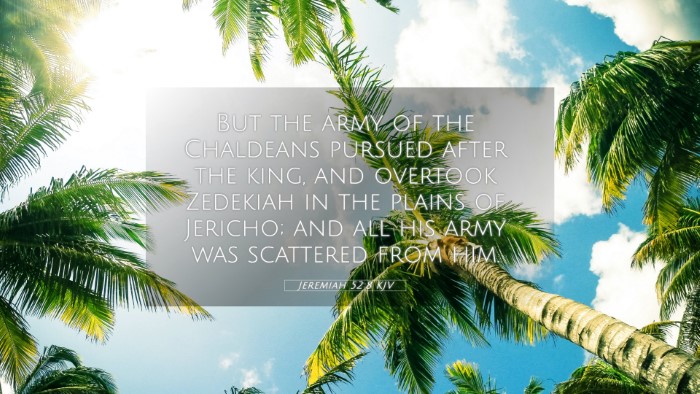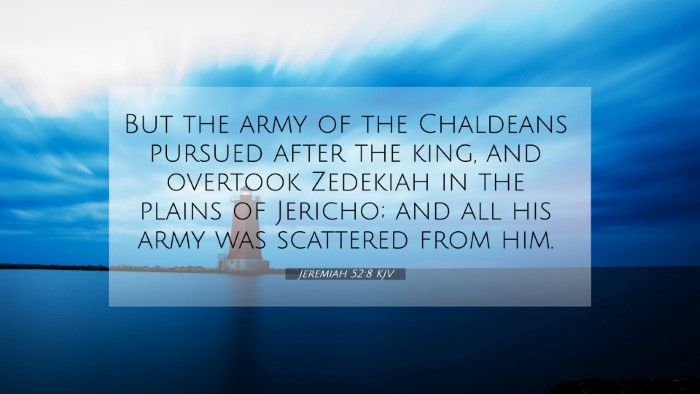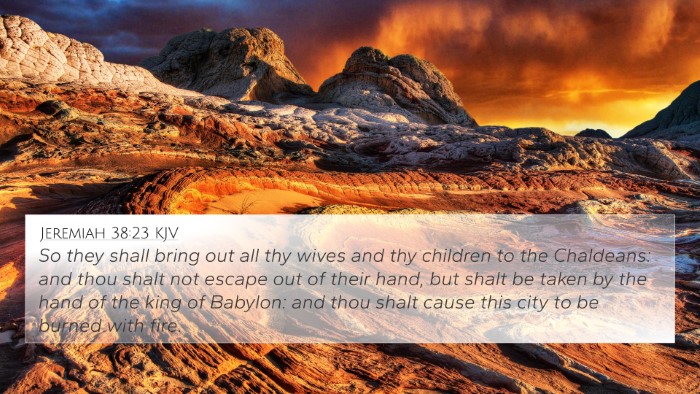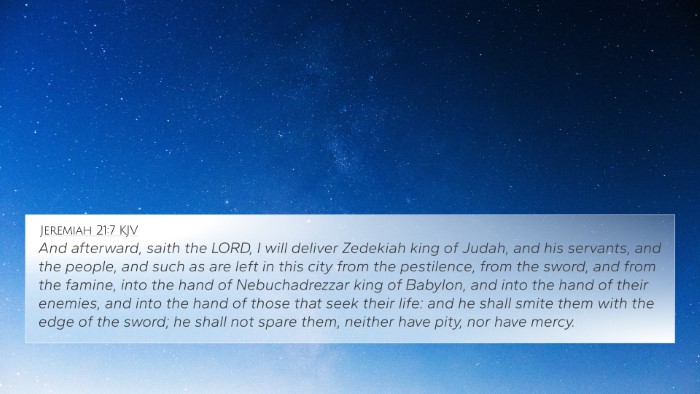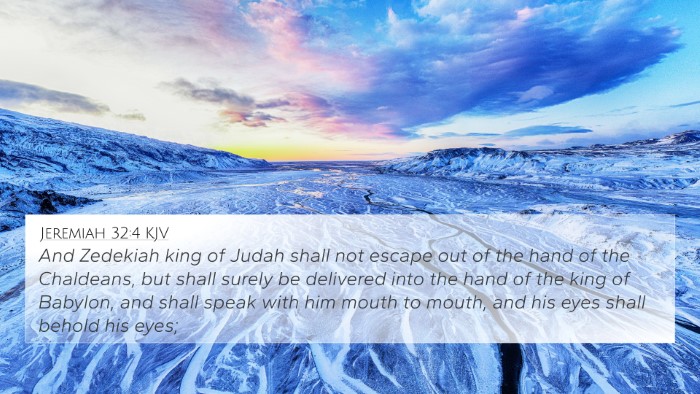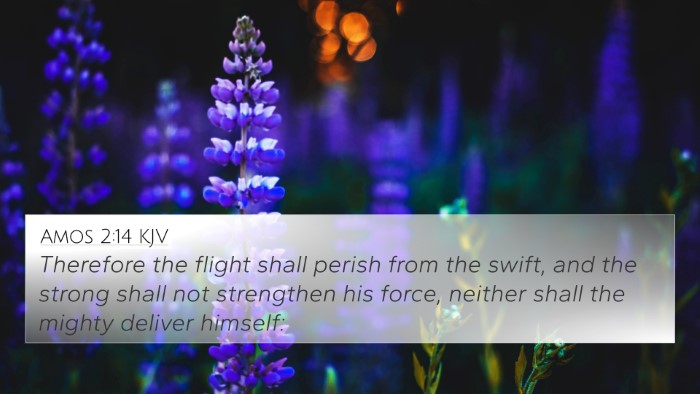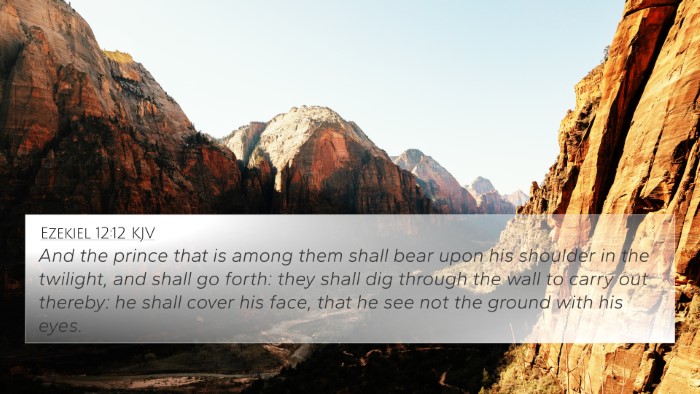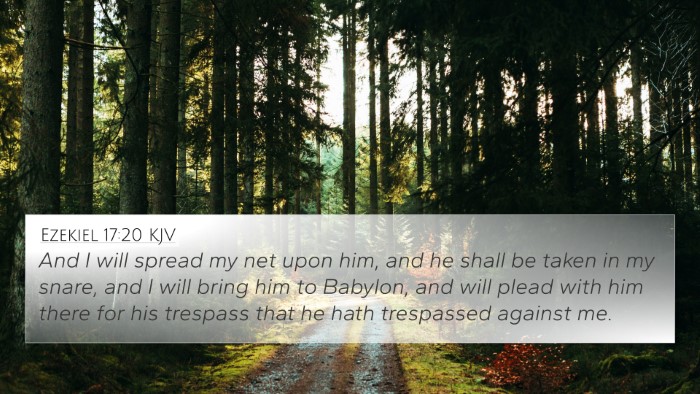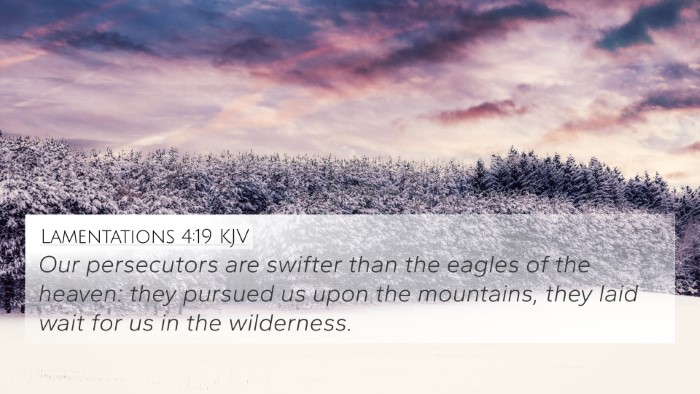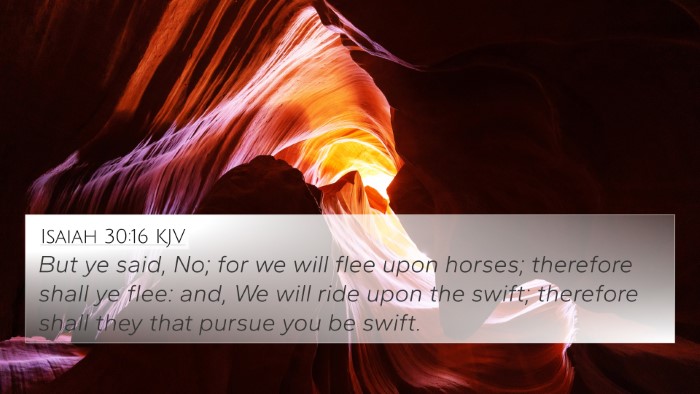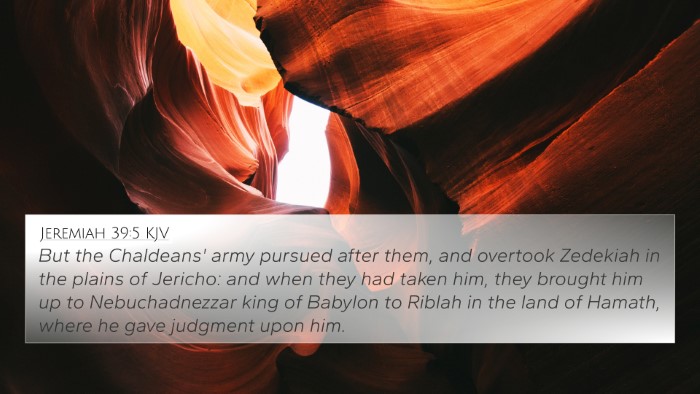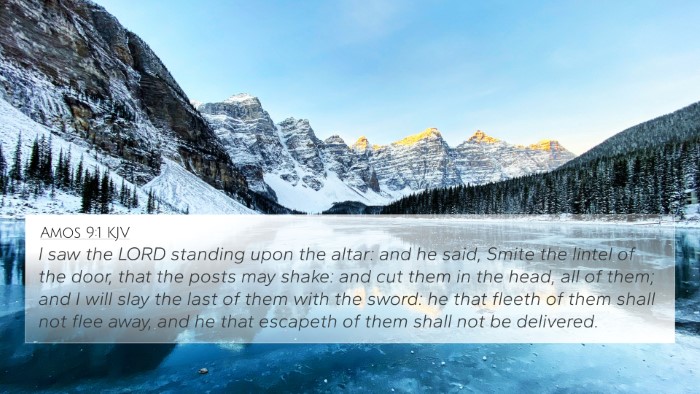Understanding Jeremiah 52:8
Jeremiah 52:8 states, "But the army of the Chaldeans pursued after the king, and overtook him in the plains of Jericho: and all his army was scattered from him." This verse concludes the account of the siege and fall of Jerusalem, depicting the desperate situation of King Zedekiah and the dire consequences of his rebellion against God.
Context and Significance
This verse is pivotal in understanding the outcome of Jerusalem's downfall. The army of the Chaldeans, representing Babylon, signifies the fulfillment of God's judgment against Israel due to their persistent disobedience. The king's flight and the scattering of his army illustrate the futility of trying to evade divine consequences.
Thematic Connections
Jeremiah 52:8 connects with several themes in scripture, particularly concerning judgment, the sovereignty of God, and the consequences of sin. It warns readers of the destructive paths that arise from turning away from God's commandments.
Bible Verse Cross-References
- 2 Kings 25:4: This verse parallels Jeremiah 52:8, providing a similar account of the siege of Jerusalem and the king's attempts to escape.
- Jeremiah 39:5: Another account depicting the king's capture reinforces the theme of inevitable divine judgment on Israel for their idolatry.
- Ezekiel 12:14: This verse discusses the scattering of the people as a direct result of their rebellion, mirroring the fate of Zedekiah's army.
- Lamentations 2:8-9: Lamentations addresses the consequences of Jerusalem’s fall, echoing the somber tone of Jeremiah 52.
- Proverbs 1:24-31: These verses reflect on the consequences of rejecting wisdom, akin to the fate of the rebellious king.
- Isaiah 39:5-6: Isaiah's prophecy anticipates Babylon’s ascendancy, establishing context for Jeremiah's dire conclusion.
- Micah 1:6: This verse discusses the desolation that comes to cities due to divine judgment, aligning with the narrative of Zedekiah's fall.
- Matthew 24:2: This New Testament reference speaks to the destruction of the temple, paralleling the themes of judgment and abandonment seen in Jeremiah.
- Romans 1:18: The theme of divine wrath against ungodliness connects to the events leading to Israel's desolation.
- Hebrews 12:25: This verse serves as a reminder of the importance of heeding God's voice, with Jeremiah's account highlighting the costs of neglecting it.
Insights from Public Domain Commentaries
Matthew Henry emphasizes that God's judgments are a consequence of human actions and disobedience, as portrayed in this dark moment. He notes how the scattering of Zedekiah’s army led to their capture, mirroring what happens when one departs from God's safety.
Albert Barnes highlights the inevitability of God's plans, warning that pursuing fleshly ambitions can lead to one’s downfall, citing the king's attempts to escape as futile. His commentary emphasizes the broader implications of disobedience in the context of national calamity.
Adam Clarke provides a detailed analysis of the specifics of the capture, hinting at the spiritual and physical consequences of abandoning one’s duties before God. Clarke’s insights reiterate the importance of faithfulness and perseverance in the face of adversity.
Cross-Referencing Biblical Texts
The act of cross-referencing biblical texts can uncover deeper meanings and connections. For instance, examining Jeremiah 52:8 alongside other verses provides clear thematic parallels, enriching scriptural understanding:
Tools for Bible Cross-Referencing
- Utilizing a Bible concordance helps identify related verses quickly.
- A cross-reference Bible study approach enhances understanding of thematic connections across scripture.
- Employing a Bible cross-reference guide can offer a systematic way to explore biblical links.
- Historical and literary contexts enrich the cross-referencing experience, revealing shared themes and declarations across the Old and New Testaments.
Practical Applications and Sermon Preparation
When preparing a sermon or study, addressing the underlying themes of Jeremiah 52:8 coupled with related verses can effectively convey the message of accountability and divine authority. Utilizing cross-references for sermon preparation can be invaluable, especially when interpreting the relationship between the prophetic warnings of judgment and their fulfillment.
Finding connections through scriptural cross-referencing encourages deeper engagement and understanding. It allows one to explore how themes of mercy and judgment resonate throughout the Bible, reinforcing the importance of a faithful relationship with God.
In Conclusion
Jeremiah 52:8 serves as a powerful reminder of the consequences of disobedience and the relentless pursuit of God’s will. Through the analysis of this verse, supported by public domain commentaries and cross-references, believers can find profound insights that apply both personally and communally.
As one engages with these truths, it is essential to consider the inter-Biblical dialogue that sheds light on God’s unchanging character and His expectations of His people. The path of obedience leads to protection, while rebellion brings about inevitable judgment, as clearly illustrated in the fall of Jerusalem.

